COVID-19 has got a lot of us staying at home for the next few weeks. That’s plenty of time to be lounging… you start to notice things around your home — like your seats and how they affect the energy in a room. Do you know their proper names? This article seeks to elaborate on the different kinds of seats, how they affect the setting of a room, and some of their non-obvious uses.
First things first: some important definitions.
What’s the difference between a couch and a sofa? Both terms are used interchangeably to describe an upholstered bench with cushions, two arms, and space for several people to sit. This includes a range of comfortable seating options, from sectionals to sleeper beds. Traditionally, ‘couch’ is a casual term, while ‘sofa’ is more formal.
Armchairs and side chairs are both single-occupant seats. While armchairs are generally larger and more comfortable, they have side supports for a person’s arms, but side chairs lack the arms and are generally not as lavish.
Layout is everything
The vibe of any room is determined to a much greater degree by the layout of the furniture in the space than by its actual footprint. If you want a room to feel homely and comfortable, pay close attention to the particular use of seats there. For example, you don’t want chairs obstructing pathways or crowding the space, causing people to make unnecessary detours. You also want more seats with rounded corners (and less with hard angles) in your home as they enhance the restfulness of a space.
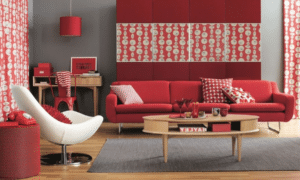
In regards to the living room, feng shui (the art of placement) recommends that for people to feel truly secure, the largest seating element should be positioned against a solid wall. If your room is large enough, adding a loveseat and a single chair should provide plenty of options for seating needs. Living room seating should be comfortable and inviting: arrange the seats in such a way that they face each other, as it encourages conversation.
The direction of a seat can also enhance one’s experience in a room. For example, a chair overlooking a window will guide the seater to appreciate the view. A sofa in the living room facing the door makes someone seated on it more aware of people going in and out of the house, hence quickly rise to welcome visitors. On the other hand, a chair in a reading room should be positioned in such a way that offers the occupant privacy and makes them less likely to be distracted.
Types of Seats
1. Sectionals
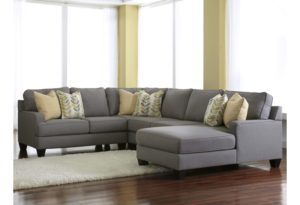
Sectionals are large sofas that are commonly found in dens and living rooms. Unlike conventional sofas, sectionals are composed of multiple independent pieces that can be arranged in different configurations. They are versatile and can combine anywhere from 3 to even 8 pieces and usually negate the need for armchairs, loveseats, and separate pieces of furniture.
2. Loveseats
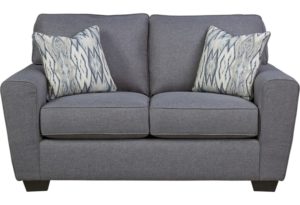
A loveseat is a small sofa that can fit two adult people. It is aptly named so because a couple in love can comfortably fit in the seat. They are mostly found in living rooms, but due to their size and versatility, can fit in virtually any room.
3. Rocking Chairs
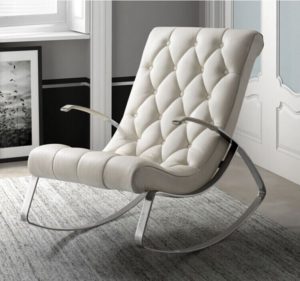
Rocking chairs are mounted on rockers (upside-down arched bases) or springs that allow them to rock back and forth. They’re perfect for those quiet evenings when you want to read by the fire or just think, or knit, maybe chat on your phone. They are a common fixture in libraries, firesides, and patios. If you have to sit a lot at home, a rocking chair is the perfect choice, since their use has been found to increase blood flow around the body, which can help ease the symptoms of arthritis and other medical conditions.
4. Accent Chairs
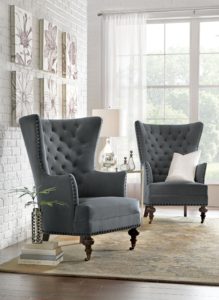
As the name suggests, accent chairs are colourful additions that complement a room’s decor and add definition to an interior space. They seat one person, but their main purpose is more aesthetic than functional. The term can also be expanded to fit other types of seats whose main purpose is not functional.
5. Chair-and-a-half
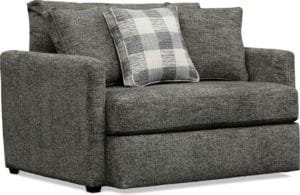
This is basically an extremely comfortable chair that is larger than an armchair but narrower than a loveseat. It is oversized and allows couples who like to sit close to canoodle in comfort. Its latest iteration is the cuddle seat, which is equally large for two but envelopes them in a protective cocoon.
6. Sleeper Sofas
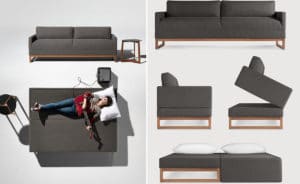
A sleeper sofa folds out to form a bed. It usually has a mattress embedded within its frame that unfolds for easy use. They are extremely versatile in that they serve both the purpose of sitting during the day and additional sleeping quarters at night time. Perfect for those with little space in their house.
7. Recliners
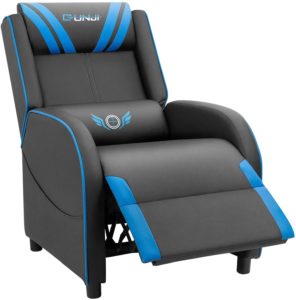
Recliners can either be armchairs or sofas. The biggest detail with recliners is that their backs can tilt backward when the occupant lowers the back and usually also have a footrest that extends to the front.
8. Chaises
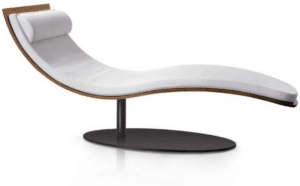
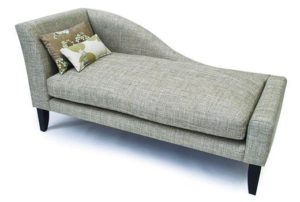
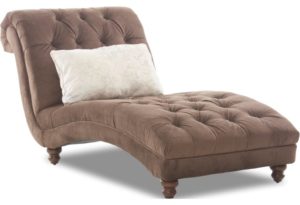
Chaises come in many different shapes:
Chaises are upholstered sofas in the shape of a chair that allow one to stretch out. They are perfect for relaxing, reading, and napping. Structurally, they are varied, with most having a backrest on only one end while others do away with the backrest entirely.
9. Swivels & Gliders
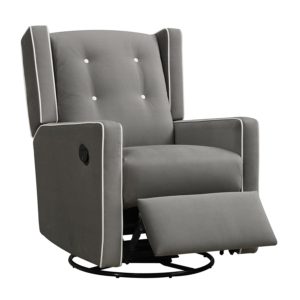
Swivel chairs have a rotating base that allows the seat to turn 360° horizontally, but they usually stay flat. Gliders, on the other hand, are fancier swivels that can also rock back and forth, kind like a rocking chair. However, it is possible to find gliders that don’t swivel.
10. Poufs and Ottomans
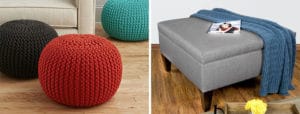
Poufs and ottomans are a common sight in most living rooms, as they both serve the purpose of accentuating the rest of the furniture. Poufs are more like pillows you can sit on — they’re smaller than ottomans, and a lot of them don’t have legs. Ottomans are larger, usually upholstered in the same design as the rest of the furniture (if you buy one as part of a set) and most can accommodate more than one person sitting or be used as a coffee table.
11. Dining Chairs
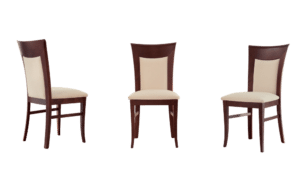
Dining chairs are usually part of the dining table. They are commonly designed as straight-backed side chairs, and usually match the design of the dining table.
Moving Seats
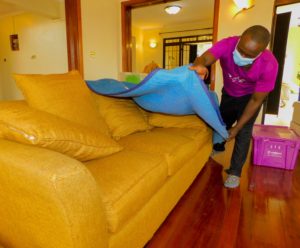
Moving your seats can be challenging as some are heavy and often valuable. The biggest consideration when moving seats is safety and cleanliness. First of all, we need to confirm the condition of the seats. We have standard forms for documenting all items and their conditions, and the client has to check off on all pre-existing faults before we begin packing. Nellions uses tailor-made moving blankets to wrap seats, which prevent them from the elements or getting scratched during the move — we have blankets for seats of all sizes. For storage and international moving, we use special corrugated paper.
What else can you do with seats?
Apart from sitting and sleeping, what more can you do with your chairs while stuck at home? Try asking your kids — they’ll give you a list. From musical chairs to hide-and-seek, your furniture will come in handier than you may think. They also like to make fortresses out of the cushions… kids can play with anything, and studies have shown that kids who play are more creative than those who don’t. Just ensure to check your furniture for sharp edges and/or any nails that stick out so they don’t harm the young ones. Have you developed a fondness for a particular seat in your house since you’ve been quarantining? Has this article given you some decor tips that you’d like to try out? Did the kids show you another game? Tell us your story on Facebook — we love hearing from our readers.













